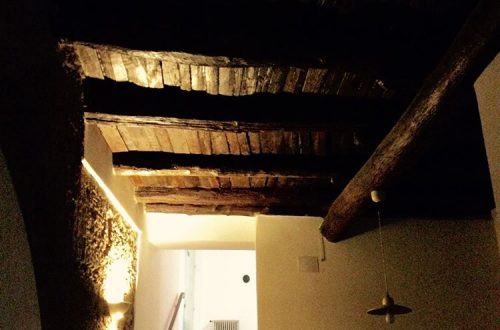Longing for Home
You wouldn’t normally notice her. Her desire was to be inconspicuous. She was parked under a scrawny tree in the middle of an empty, sizzling parking lot.
I hurriedly drove past her intent on beating the lunch crowd. Her car doors were open. The contents of her life swelled to the roof and eagerly anticipated the consumption of her car. She was still there when I returned an hour later.
I debated. “Should I just pretend that I didn’t see her and go on about my workday? Surely someone will stop and offer her assistance,” I reasoned. Then the guilt kicked in: “But, what if no one else sees her? I saw her. Does that make me responsible? What if she faints from heatstroke?”
I wish I could say that I walked over to her car with a pure heart and desire to help. Honestly, I did care about her well-being, but I also wanted to appease my guilty conscience.
“Excuse me, ma’am. May I offer you a bottle of water? I thought you might be thirsty.” Patty eagerly accepted the bottle of water, I introduced myself, and she began telling me her story.
A former law student, Patty had dropped out of school and quit her job to take care of her alcoholic and ailing father. After he passed away, she found herself nursing other sick friends and family members, and spending her limited income on caring for others. The jobs she was able to find were only temporary and she had difficulty finding affordable housing.
I don’t know how long she’d been living in her car, but she apologized for its cluttered condition. Patty divulged, “When you live with your belongings and they scratch and pinch and stab you all day and all night long to remind you of their presence—as if I could ever forget—they become part of your very person. And honestly, I’m tired of being dragged down by it all. I want to find somewhere to unload my car. I want to be free of this baggage and to have a home again.”
Home. In an ideal situation, home is the place where we belong. Where our loved ones reside. Where we can safely lay our head on the pillow each night and wake up in relative comfort. Where we feel at peace and can be ourselves.
But for those without homes—exiles, sojourners, those who live in a car—home is an elusive concept. A thing longed for and prayed for that has not yet materialized.
I imagine that the recipients of the letter recorded in 1 Peter might have shared Patty’s sentiments in longing for home. Persecuted for their belief in Christ, these early Christians found themselves as exiles in a pagan land. They were spiritual outsiders who were not welcomed or wanted. They were suffering for their faith, and so Peter encouraged them to return evil with love and to suffer well for the glory of God.
Surprisingly, instead of assuring the hearers of his letter that the suffering would soon diminish, Peter instructed them to not only expect, but rejoice, in their suffering. Why? Because "such trials show the proven character of your faith, which is much more valuable than gold—gold that is tested by fire, even though it is passing away—and will bring praise and glory and honor when Jesus Christ is revealed. ” (1 Peter 1:7)
Persevering through trials. Joy in the midst of hardship. Living out your faith in radical obedience to God despite persecution. These are all themes that appear in 1 Peter, and to be quite honest, they aren’t popular topics. They are issues that require something of us—deep abiding faith in our good God.
I saw such faith in Patty. Although she wasn’t being persecuted for her faith, she was an exile, and very much alone in a world that by and large, had forgotten her. Patty was suffering. Suffering from a lack of community. Suffering from the anxiety of not knowing where her next meal was coming from. Suffering from not having a place to lie down at night.
And yet, Patty found joy in her circumstances. Patty said that because she lived in her car, she was free to worship God wherever she pleased. She delighted in observing God’s creation, from feeding her cracker crumbs to the crows to counting the stars at night. Patty praised God for things I miss, like cloud-cover on a scorching day and the ability of ants to work together to lift heavy burdens. And above all else, she praised God for his goodness and provision in her life.
God’s goodness? God’s provision? If I were living in my car, I don’t think those would be the first two things that came to mind. But for Patty, living in her car was the current state of her life. She could either despair or praise. And she had chosen to praise God.
As I walked away from her car wiping the dripping foundation off my nose, it hit me. Patty had peace despite her difficult circumstances because she knew that her ultimate home was not a physical place. Home, for Patty, meant dwelling with God. And with the Holy Spirit living inside of her and the promise of spending eternity with God, what home could be greater?
It is my prayer that in light of our eternal home, all of us, myself included, will choose to praise and trust God despite our circumstances.


